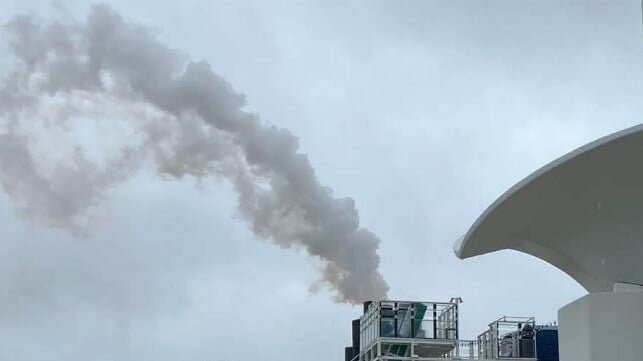Regional Ban on Scrubber Wash Water Adopted in Virgo, Spain
Representatives from 16 countries gathered in Virgo, Spain, have made a groundbreaking announcement on June 27th. They have collectively agreed on the first regional ban on the discharge of scrubber wash water as part of a series of new environmental actions. While environmental NGOs have welcomed this move, some have expressed concerns that the ban does not go far enough in protecting territorial seas.
Concerns Over Hazardous Discharges
Ministers at the meeting expressed serious concerns about the hazardous discharges from exhaust gas cleaning systems on ships. Activists, such as the NGO Seas at Risk, have highlighted the contaminants present in scrubber wash water, including polycyclic aromatic hydrocarbons and heavy metals. The NGO has been advocating for a total ban on the discharge of scrubber wash water into all coastal waters.
Maarten Verdaasdonk, Project Manager at the North Sea Foundation, emphasized the importance of extending the ban to territorial waters. He stated, “Turning air pollution into ocean pollution is not an acceptable trade-off. It is vital that all OSPAR Members support the proposal to extend the ban to territorial waters, especially as cleaner, widely available alternatives exist.”
Two-Stage Ban Implementation
The ban adopted by the members will be implemented in two stages. The first stage will focus on the wash water from open-loop scrubbers, starting in July 2027 in the North-East Atlantic region. This region covers the coastline from Spain to Norway and west to Greenland. The second stage will target the discharge from closed-loop scrubbers, with the ban set to be in effect by January 2029.
However, the current ban only applies to internal waters and areas around ports. The NGO has called for an extension of the ban to cover all territorial waters within a 12 nautical mile range from the coastline. OSPAR members have agreed to revisit this issue in 2027 after further studies on the impact in territorial seas.
Additional Environmental Actions
Aside from the scrubber wash water ban, the ministers at the meeting have taken other significant actions. This includes expanding the organization’s maritime area by over 2.5 million square kilometers, incorporating waters of Macaronesia, the Azores, Madeira, and the Canary Islands. They have also introduced new measures to address marine litter, plastic pollution from pontoons and buoys, and a regional plan on underwater noise.
Furthermore, efforts to strengthen protection in the Arctic, including the identification of potential Marine Protected Areas, were discussed. The ministers have reiterated their commitment to not treating the seas as a dumping ground and the removal of disused offshore installations.
About OSPAR
OSPAR was established in the 1970s following UN-sponsored conventions in Oslo and Paris, with a focus on reducing marine pollution. The member countries include Belgium, Denmark, Finland, France, Germany, Iceland, Ireland, Luxembourg, Netherlands, Norway, Portugal, Spain, Sweden, Switzerland, and the United Kingdom.

